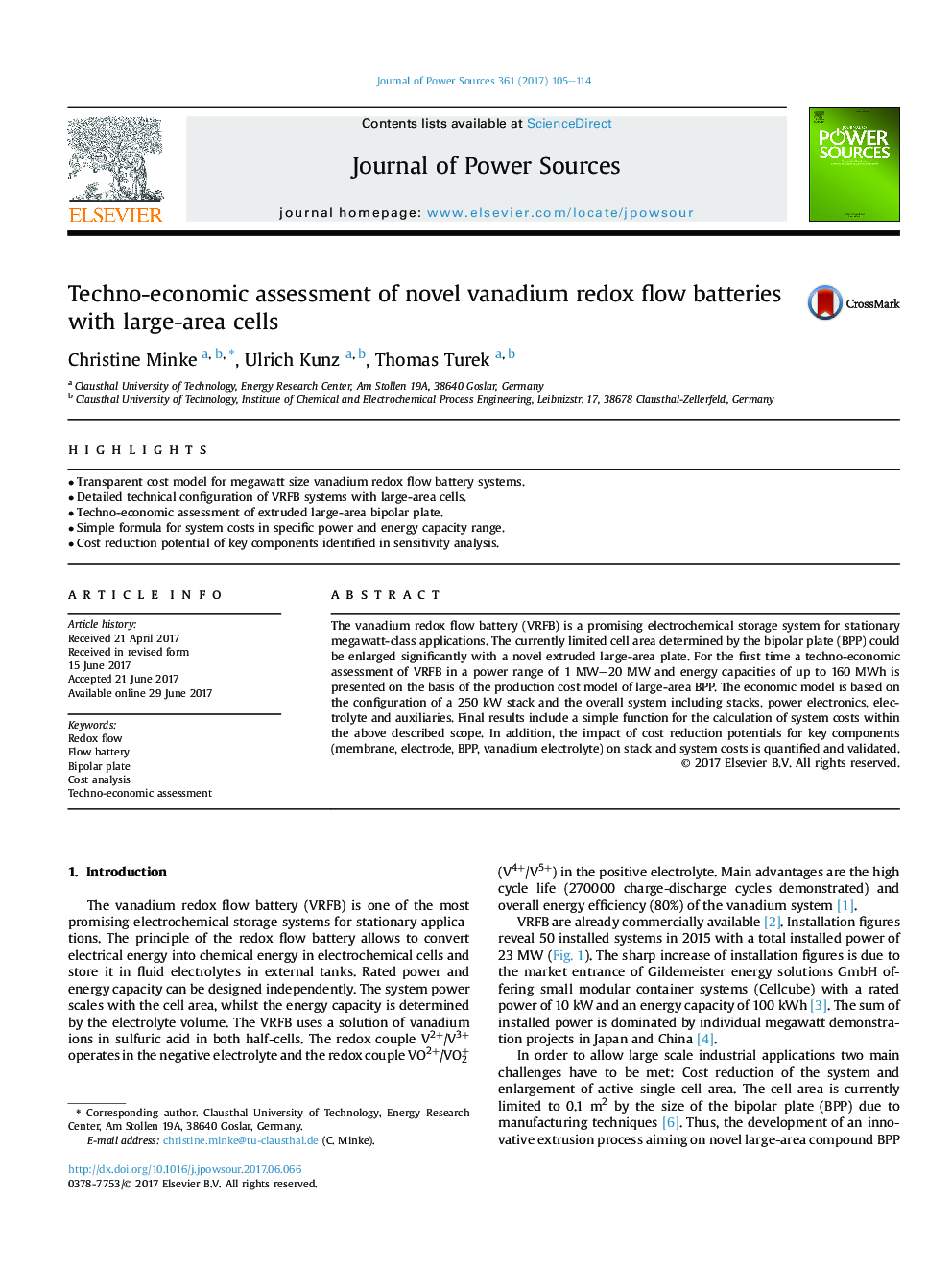| Article ID | Journal | Published Year | Pages | File Type |
|---|---|---|---|---|
| 5148873 | Journal of Power Sources | 2017 | 10 Pages |
Abstract
The vanadium redox flow battery (VRFB) is a promising electrochemical storage system for stationary megawatt-class applications. The currently limited cell area determined by the bipolar plate (BPP) could be enlarged significantly with a novel extruded large-area plate. For the first time a techno-economic assessment of VRFB in a power range of 1Â MW-20Â MW and energy capacities of up to 160Â MWh is presented on the basis of the production cost model of large-area BPP. The economic model is based on the configuration of a 250Â kW stack and the overall system including stacks, power electronics, electrolyte and auxiliaries. Final results include a simple function for the calculation of system costs within the above described scope. In addition, the impact of cost reduction potentials for key components (membrane, electrode, BPP, vanadium electrolyte) on stack and system costs is quantified and validated.
Related Topics
Physical Sciences and Engineering
Chemistry
Electrochemistry
Authors
Christine Minke, Ulrich Kunz, Thomas Turek,
